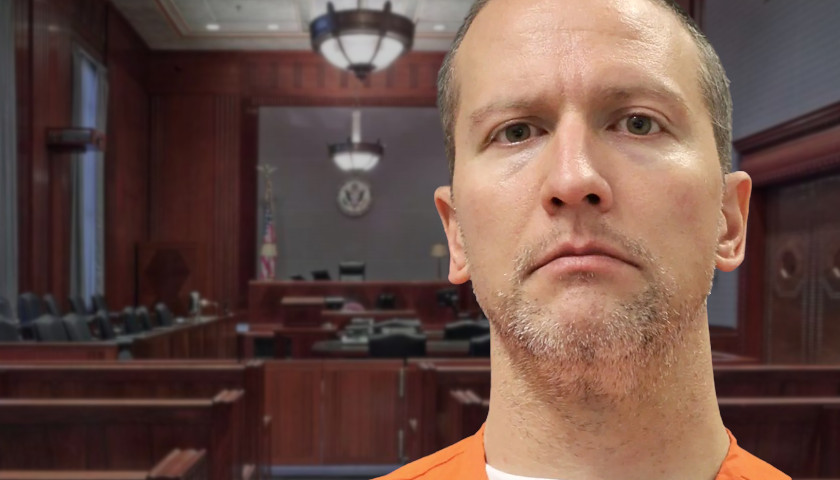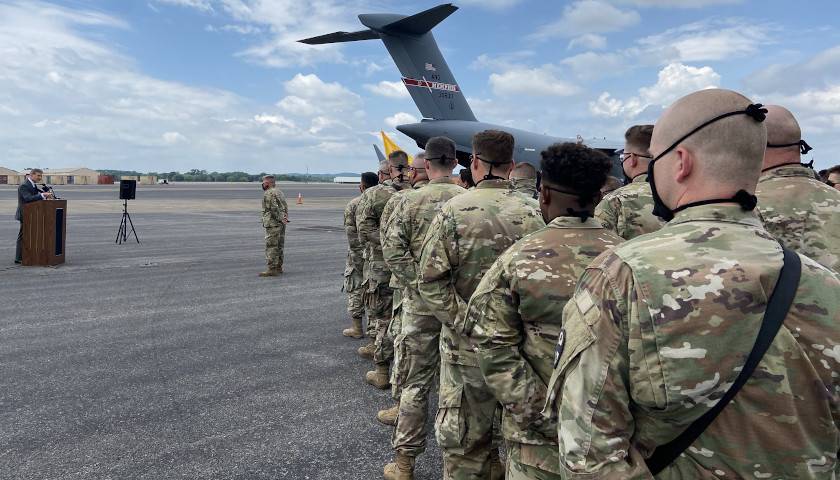In dramatic final day of Derek Chauvin’s trial for second and third degree murder of George Floyd, Chauvin invoked his Fifth Amendment right remain silent during his own trial.
After a series of questions and answers between Chauvin and his attorney Eric Nelson, confirming for the court’s record that Chauvin understood his Fifth Amendment rights, and was exercising them on his own accord, the former Minneapolis Police officer decided he would not take the stand.

It was also made clear that prosecution could not use Chauvin’s silence as an implication of guilt.
“I have repeatedly advised you that this is your decision, and your decision alone, right?” Nelson asked his client.
“Correct,” Chauvin replied.
“And have you made a decision today whether you intend to testify, or whether you intend to invoke your Fifth Amendment privilege?” Nelson asked.
“I will invoke my Fifth Amendment privilege today,” Chauvin said.
Hennepin County District Judge Peter Cahill then addressed Chauvin, asking a similar set of questions, before saying that he was satisfied that Chauvin had made the decision not to testify by his own volition.
He also asked Chauvin whether Chauvin would prefer that he explicitly read an instruction to the jury, telling them to refrain from inferring that his silence was an implication or admission of guilt. Chauvin agreed to that stipulation.
“Do you understand that instruction?” Cahill asked.
“Yes, your honor,” Chauvin replied.
“And would you like that instruction read to the jury?” Cahill asked.
Yes, your honor,” Chauvin said again.
“Have you had enough time to talk to Mr. Nelson about whether that’s a good idea or not?” Cahill asked.
“I have, your honor,” Chauvin said.
“All right. So I will read that to the jury on your request,” Cahill finished.
The defense then rested its case.
It was the first time that Chauvin spoke during his nearly month-long trial.
The state prosecution then called a rebuttal witness, sparking a dramatic finish to the day that nearly resulted in a mistrial, which would have allowed Chauvin to walk free.
Dr. Martin Tobin, who was a state witness last week and concluded that the drugs in Floyd’s system did not cause his death, was called to rebut one of Nelson’s witnesses, who concluded the opposite on Wednesday. Tobin originally testified that Floyd died due to the low level of oxygen in his blood.
Upon introduction of the results of a new lab test about the amount of carbon monoxide in Floyd’s blood at the time of his death as evidence, Cahill set strict limitations for the prosecution.
Cahill said that he would declare a mistrial if the state “even mentions” that Floyd had a normal amount of carbon monoxide in his blood when he died.
Almost immediately, Tobin testified that Floyd did, in fact, have a normal amount of carbon monoxide in his blood, breaking Cahill’s rule.
Nelson objected, and a recess was taken, during which time Nelson moved for a mistrial. His objection was sustained, but the motion for a mistrial was denied.
A perturbed Cahill tentatively allowed the prosecution to continue, and the questioning ended without further incident.
Closing arguments in the trial are set for Monday.
– – –
Pete D’Abrosca is a contributor at The Minnesota Sun and The Star News Network. Follow Pete on Twitter. Email tips to [email protected].




